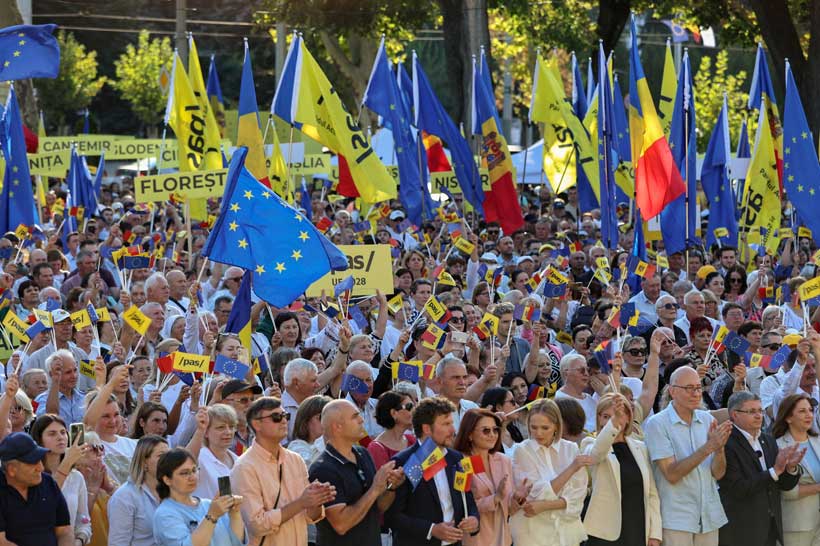Moldova’s pro-EU ruling party has won a decisive victory in parliamentary elections, signaling the country’s determination to pursue European integration despite pressure and interference from Moscow.
A Small State at a Crossroads
Moldova, a former Soviet republic of 2.6 million people, has long been divided between a pro-European orientation and historical ties to Russia. Sunday’s vote was widely seen as a test of whether the country would accelerate its EU bid or drift back into Moscow’s orbit.
The results showed a strong endorsement of the ruling party’s agenda, which emphasizes reforms, democracy, and closer ties with Brussels. Opposition parties aligned with Russia struggled to gain traction, despite energy price concerns and disinformation campaigns.
The victory comes at a moment of heightened geopolitical stakes. Since Russia’s invasion of Ukraine, Moldova has faced rising security risks, including cyberattacks, political meddling, and pressure over its reliance on Russian energy supplies. For Brussels, the election outcome is both symbolic and strategic: a small nation choosing Europe despite the risks.
Why It Matters
Moldova’s decision strengthens the EU’s eastern flank at a time when Russia is seeking to reassert influence across post-Soviet states. The vote also reflects broader regional trends, where countries are reassessing their security and economic ties amid Russia’s war in Ukraine. For the EU, welcoming Moldova signals commitment to enlargement, while for Russia, it is another sign of waning leverage.
Moldova’s Ruling Party and Citizens: The victory reinforces their mandate to push forward with democratic reforms and EU accession. Citizens are betting on Europe as the pathway to stability and prosperity, even if it means short-term sacrifices.
European Union: Brussels sees Moldova’s choice as validation of its enlargement policy. Leaders from the European Council to the Commission hailed the result as a rejection of Russian interference and a vote for democracy.
Russia: The Kremlin loses influence in a region it considers part of its sphere. Moscow may respond with political pressure, economic tools, or hybrid tactics to slow Moldova’s westward drift.
Neighboring Ukraine: Welcomes Moldova’s pro-EU stance as it strengthens the broader pro-European coalition in Eastern Europe, creating more resilience against Russian aggression.
Regional Security Organizations : From NATO to OSCE, institutions have a stake in ensuring Moldova’s transition remains peaceful and its borders secure.
Future Scenarios:
The election is only the first step. Moldova must now deliver on reforms, tackle corruption, and align with EU standards, a process that could take years. Russia may escalate efforts to destabilize the government through disinformation, energy manipulation, or support for opposition groups. But with Brussels offering political backing and potential financial aid, Moldova has a clearer path than ever toward Europe.
With information from Reuters.
